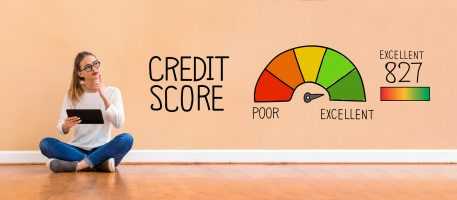Do I Qualify for Public Service Loan Forgiveness (PSLF)?
Q. I’m a physician working in critical access hospitals within the Indian Health Service as an independent contractor. Do I qualify for the PSLF? How do I apply for it?
Dear Reader,
As an independent contractor you would not qualify for Public Service Loan Forgiveness because you do not satisfy the employment eligibility requirement. To be eligible for the PSLF, you have to be directly employed by a qualifying government or nonprofit agency at a full-time capacity. In addition to satisfying employment requirements, you also need to have Direct Loans with an income-based repayment plan, like Pay As You Earn Repayment Plan or Revised Pay As You Earn Repayment Plan, and make 120 on-time, qualifying payments.
Initially, this program was created in 2007 to incentivize borrowers to work in public service positions, and of course, give them the opportunity to have their debts forgiven. The first borrowers who applied saw their debts forgiven just in 2017, and surprisingly, only a small percentage of them were successful.
Many of the applications submitted were rejected because borrowers did not meet the employment requirement or were not making qualifying payments. So, it is crucial to determine your eligibility criteria early on and plan accordingly for the next 10 years. Finding out that you are not eligible after you submit your application can put you in a difficult financial position. At that point, it is likely that you’ve accumulated more interest and that your overall student loan debt has increased.
So, if you are considering applying to this program, you’ll need to change your employment status. In fact, to be eligible for any forgiveness programs, you’ll have to be directly employed by a qualifying employer. For instance, the Indian Health Service offers a similar loan forgiveness program–the Indian Health Service Loan Repayment Program. This program awards up to $20,000 per year to borrowers in exchange for working full-time at an Indian health facility with a two-year commitment.
But, if you prefer not to change your employment status to qualify for these specific forgiveness programs, you should explore other federal repayment programs or create a strategy to repay it on your own. I suggest visiting the U.S. Department of Education to review other available programs or talking to an NFCC-certified credit counselor to fully explore all of your student loan repayment options. There’s plenty of information and assistance out there. Just make sure you understand each thoroughly before you make a decision. Good luck!
Sincerely,
Bruce McClary, Vice President of Communications
Bruce McClary is the Vice President of Communications for the National Foundation for Credit Counseling® (NFCC®). Based in Washington, D.C., he provides marketing and media relations support for the NFCC and its member agencies serving all 50 states and Puerto Rico. Bruce is considered a subject matter expert and interfaces with the national media, serving as a primary representative for the organization. He has been a featured financial expert for the nation’s top news outlets, including USA Today, MSNBC, NBC News, The New York Times, the Wall Street Journal, CNN, MarketWatch, Fox Business, and hundreds of local media outlets from coast to coast.


